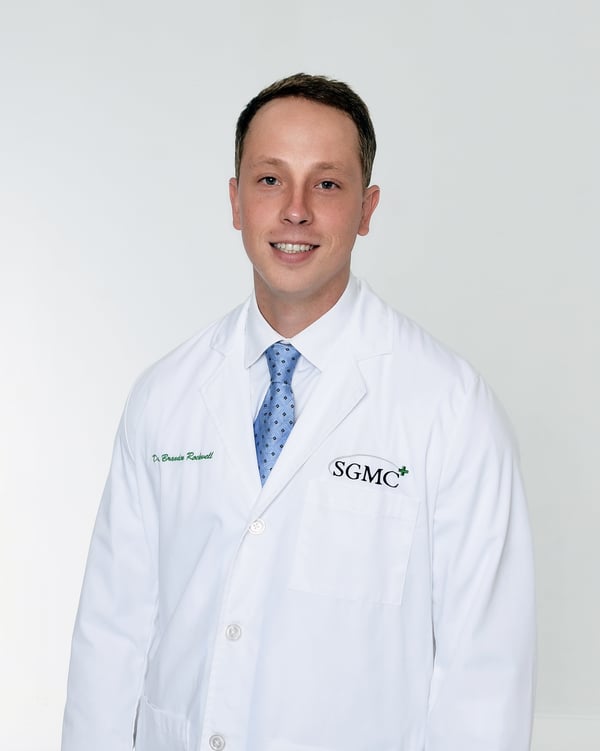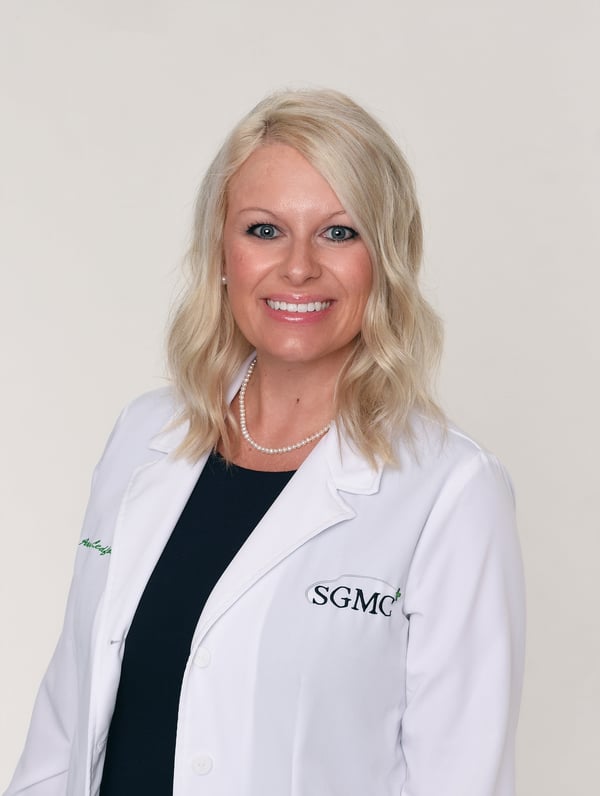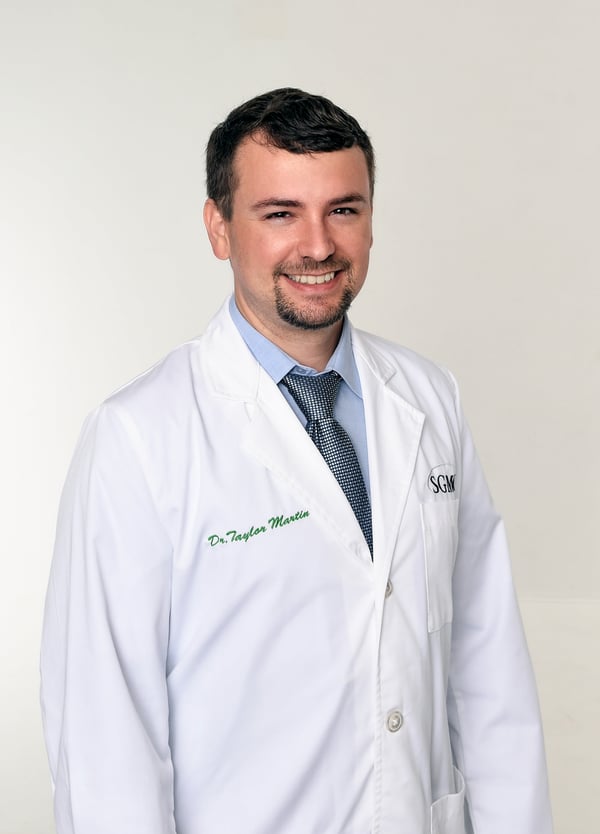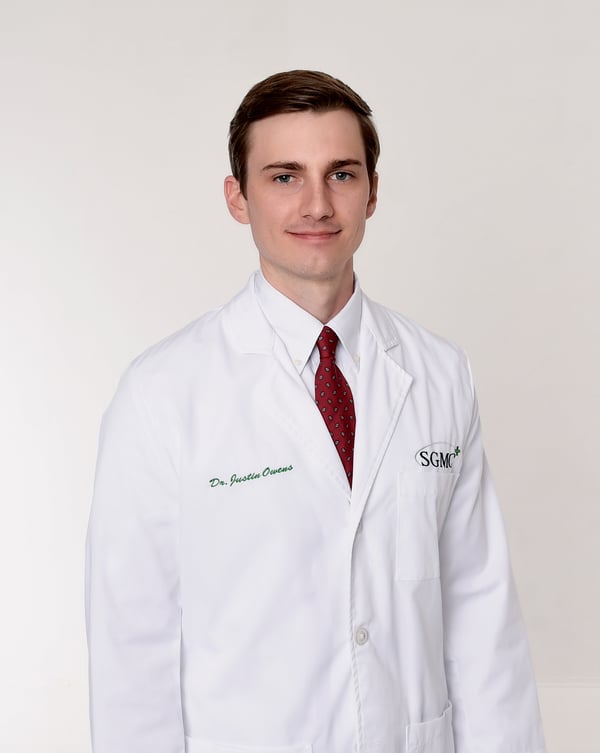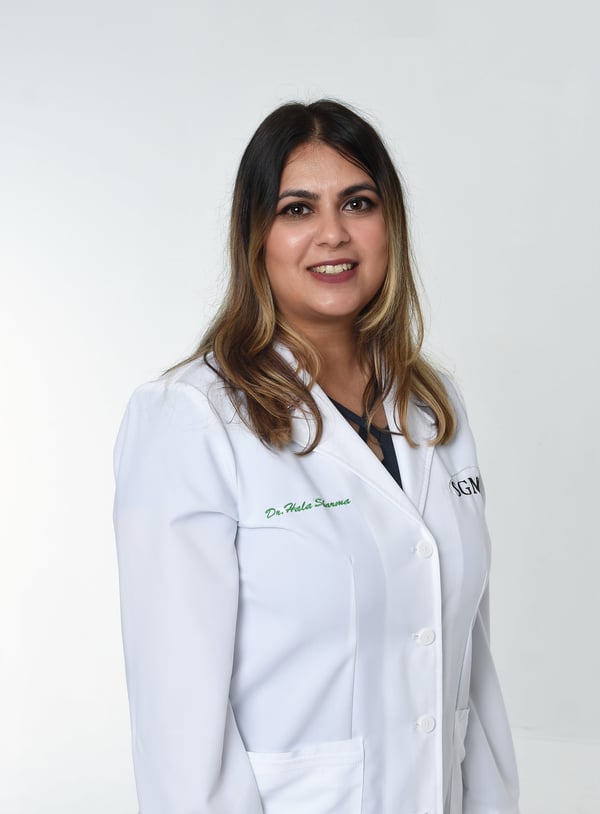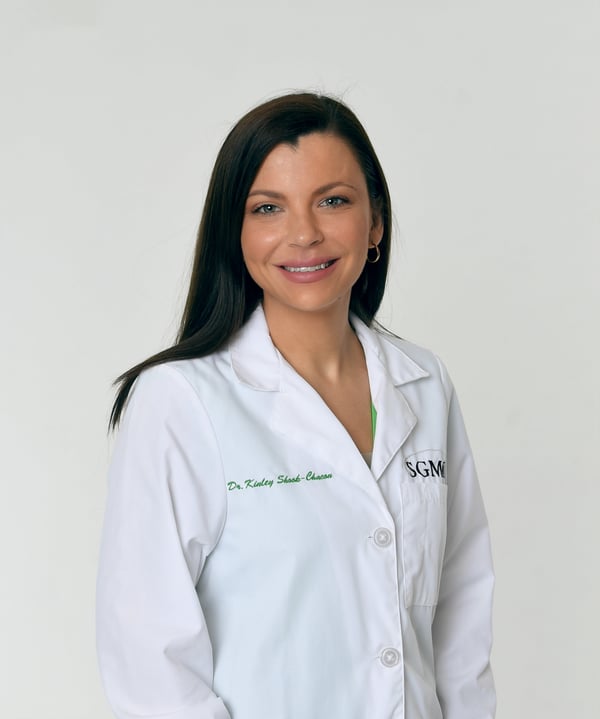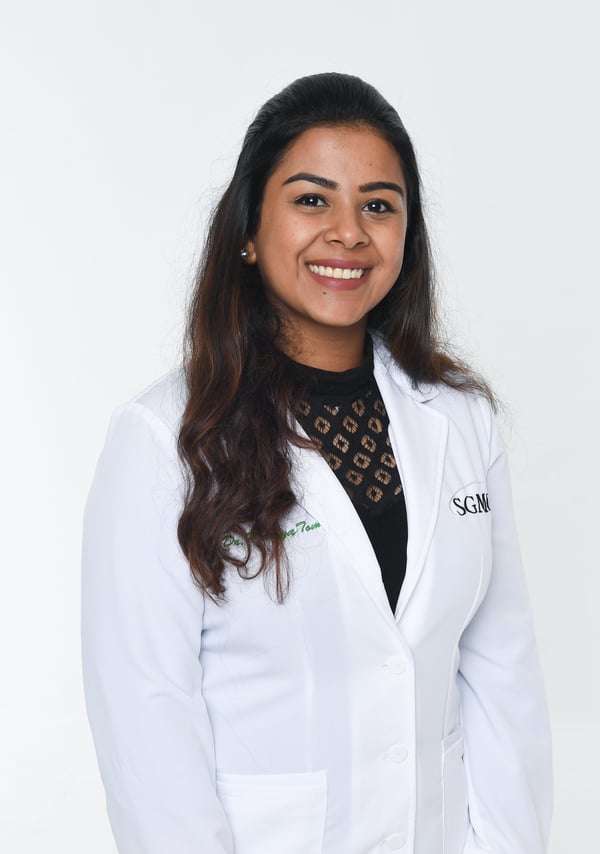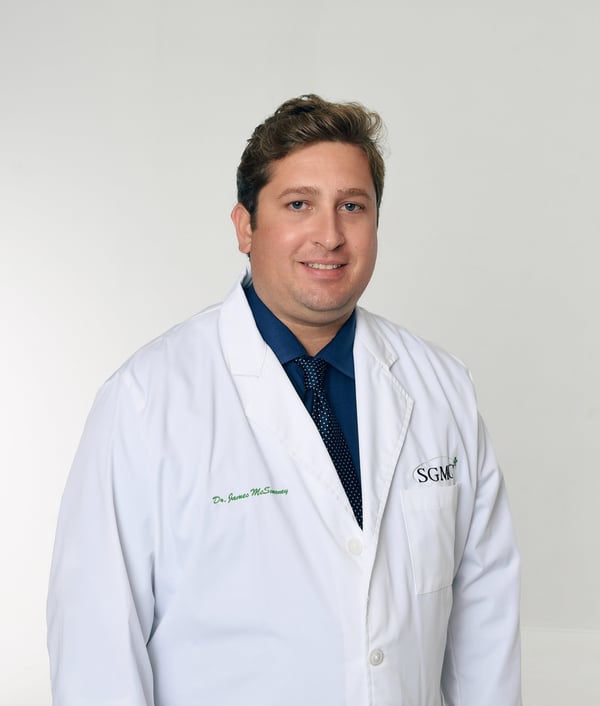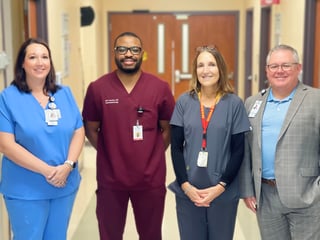
Unequaled Access to Care
A Year of Transformation: More Than a New Name
What once served as an acronym for South Georgia Medical Center, SGMC, now takes on a new meaning with the addition of the word "Health." In November, SGMC Health became the official name for the health system which provides an array of inpatient, outpatient, and ambulatory services in a variety of locations, including four hospitals, across South Georgia.
The hospitals also received new names: SGMC Health Main, SGMC Health Smith Northview, SGMC Health Berrien, and SGMC Health Lanier.
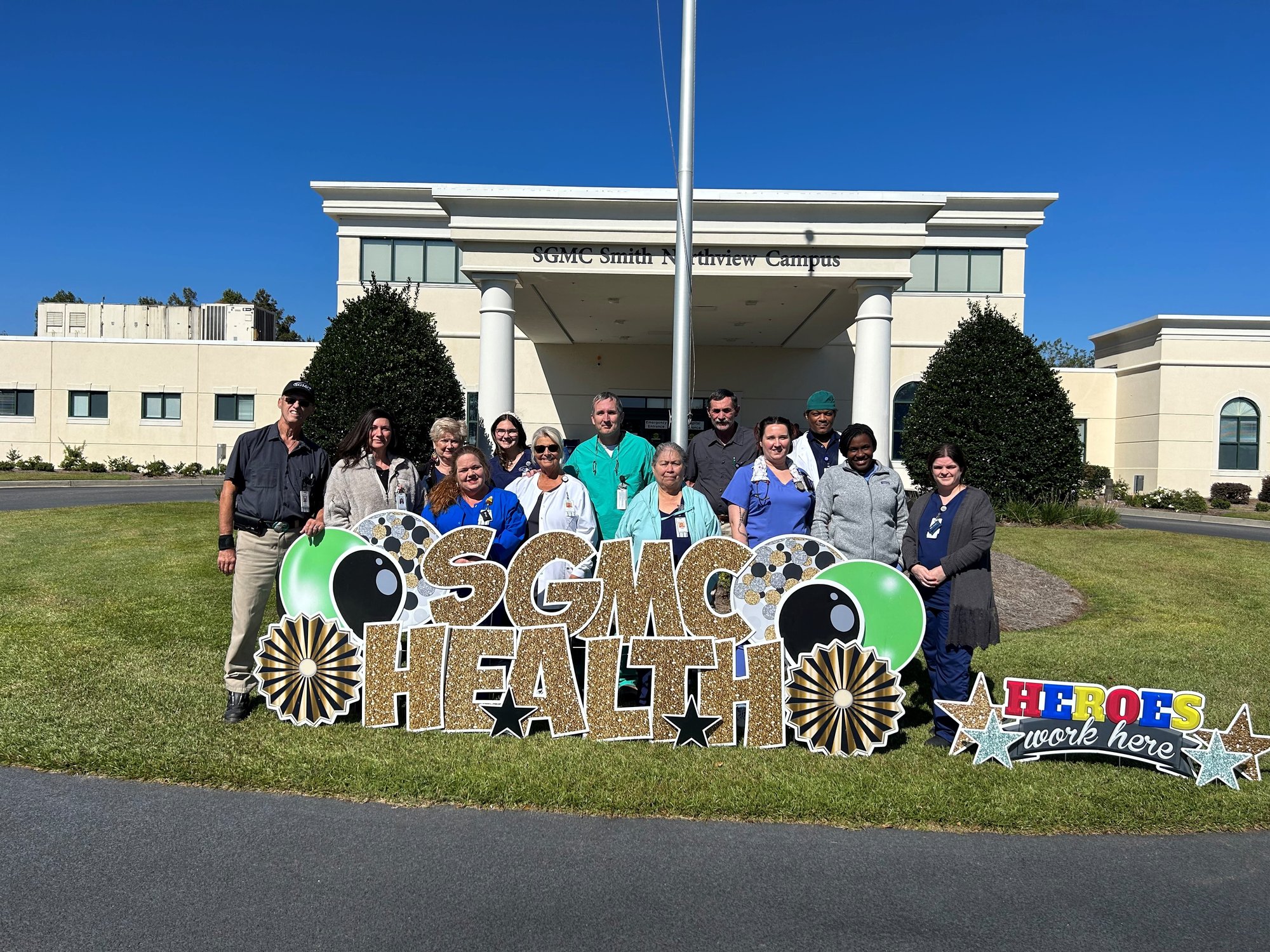
According to SGMC Health President and Chief Executive Officer Ronald E. Dean, "SGMC Health is a regional healthcare system, and our new name more accurately defines the comprehensive system of healthcare services we provide and the very reason we exist: to improve the lives of all we serve.”
Opening as Pineview Hospital in 1955 and known as South Georgia Medical Center (SGMC) since 1971, the evolvement of the health system name to SGMC Health is a result of the organization’s continued growth and commitment to creating unequaled access to care through the expansion of needed healthcare services and locations across the region.
Operating as a 501c3, non-profit organization, SGMC Health paves the way for expansion and the future of healthcare for our region. With a workforce exceeding 3,100 team members and 600+ medical staff, the health system has grown over the years, now generating an economic impact to the region of more than $1 billion annually.
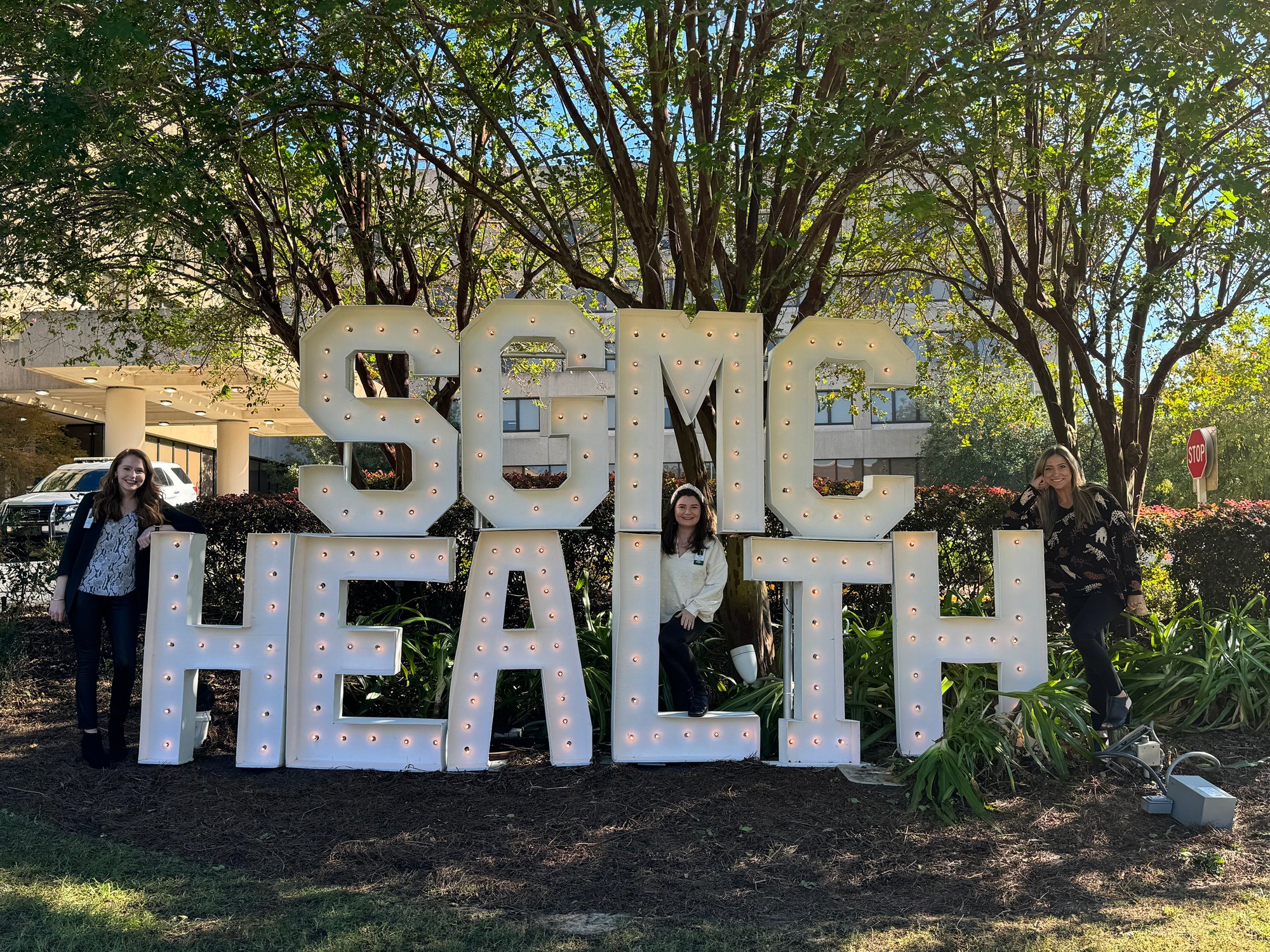
To further support this growth, SGMC began Phase I of its long-range master facilities plan which includes a $150 million investment in the main campus: a new women and infant's tower, emergency and trauma center, and campus redesign.
The new patient tower will expand the main campus by 145,000 sq. ft. and create a new main entrance to inpatient and outpatient services and programs. Two patient floors, a first floor entryway, lobby, and other unique spaces will be committed to women’s health during the birthing experience and infant care, including an expanded Neonatal Intensive Care Unit.
Another ground level feature of the new tower includes a new emergency and trauma center with an increased number of specialized treatment areas to handle up to fifty percent more patient and family encounters with higher levels of efficiency and comfort. These areas include specially designed spaces for different levels of care, including express care, behavioral healthcare, and trauma services.
As the area's Level III Trauma Center, SGMC Health provides care to nearly 100,000 patients and families that visit SGMC Health Emergency Departments each year. The new ER is critical to enhancing timely access to emergency and trauma care for a growing population in South Georgia and surrounding areas, especially in the midst of a life-threatening event. Additional SGMC Health Main campus enhancements will include a connector boulevard, additional surface parking, and a wellness park.
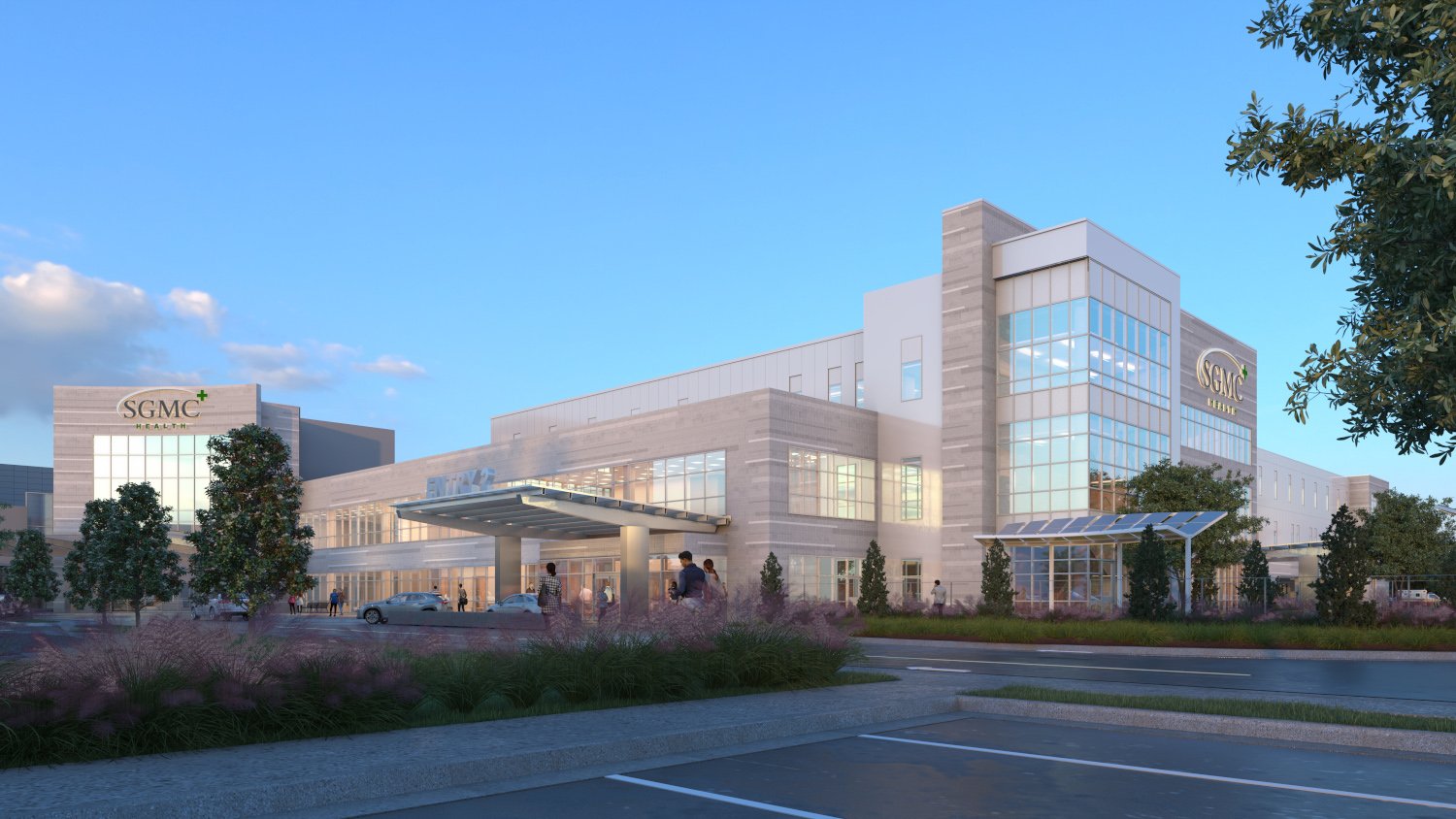

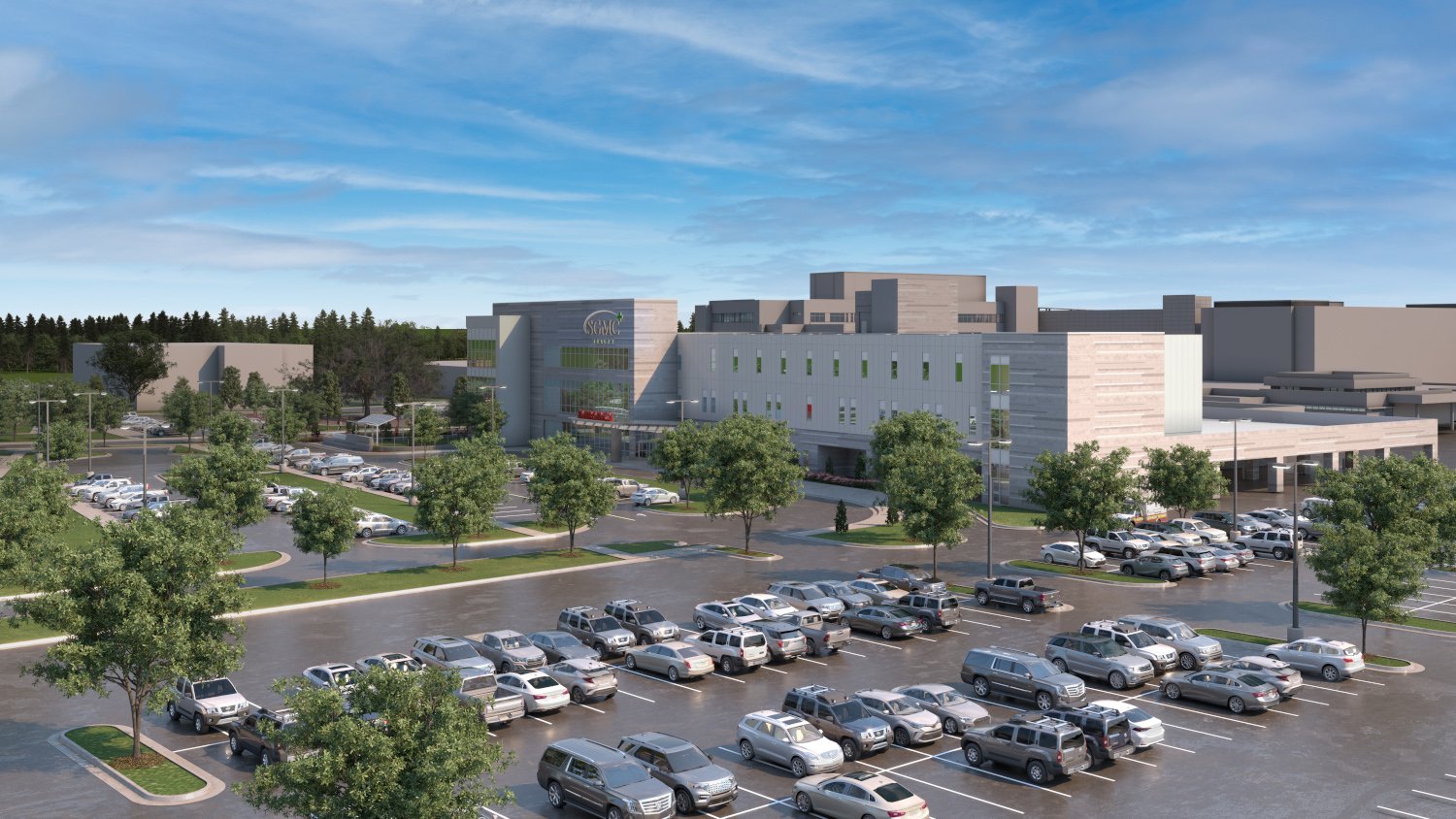



The transition of South Georgia Medical Center to SGMC Health marks a significant milestone in the evolution of healthcare services in the region. This change reflects a broader commitment to providing comprehensive and accessible care. With a history spanning over half a century, SGMC Health's dedication to improving the lives of individuals and families remains steadfast. The investment in infrastructure and facilities, such as the new patient tower and emergency center, underscores the commitment to meeting the evolving needs of a growing population.
For more information, visit sgmc.org.
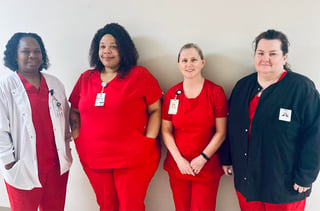
Advancements in SGMC Health Lab Propel Growth and Community Collaboration
In the past year, laboratory services at SGMC Health has undergone significant expansion and innovation, solidifying its position as a regional leader in healthcare diagnostics. The introduction of an automated line, coupled with the incorporation of 16 new tests, has not only streamlined processes but has also enhanced the lab's capacity to conduct more tests with greater cost-effectiveness.
One notable achievement is a strategic partnership with Labcorp. Serving as a local reference lab for Labcorp, SGMC Health has successfully executed a small-scale launch that’s provided greater access and in-network coverage to the community, reduced patient costs, and enables SGMC Health to reinvest in the future.
A key aspect of SGMC Health's commitment to growth is its collaboration with educational institutions. The partnership with Wiregrass Georgia Technical College has played a pivotal role in addressing the need for qualified Medical Laboratory Technicians (MLTs). By revitalizing the MLT program and establishing a symbiotic relationship with Wiregrass, SGMC Health has created a pathway for local students to receive training and eventually contribute to the workforce.
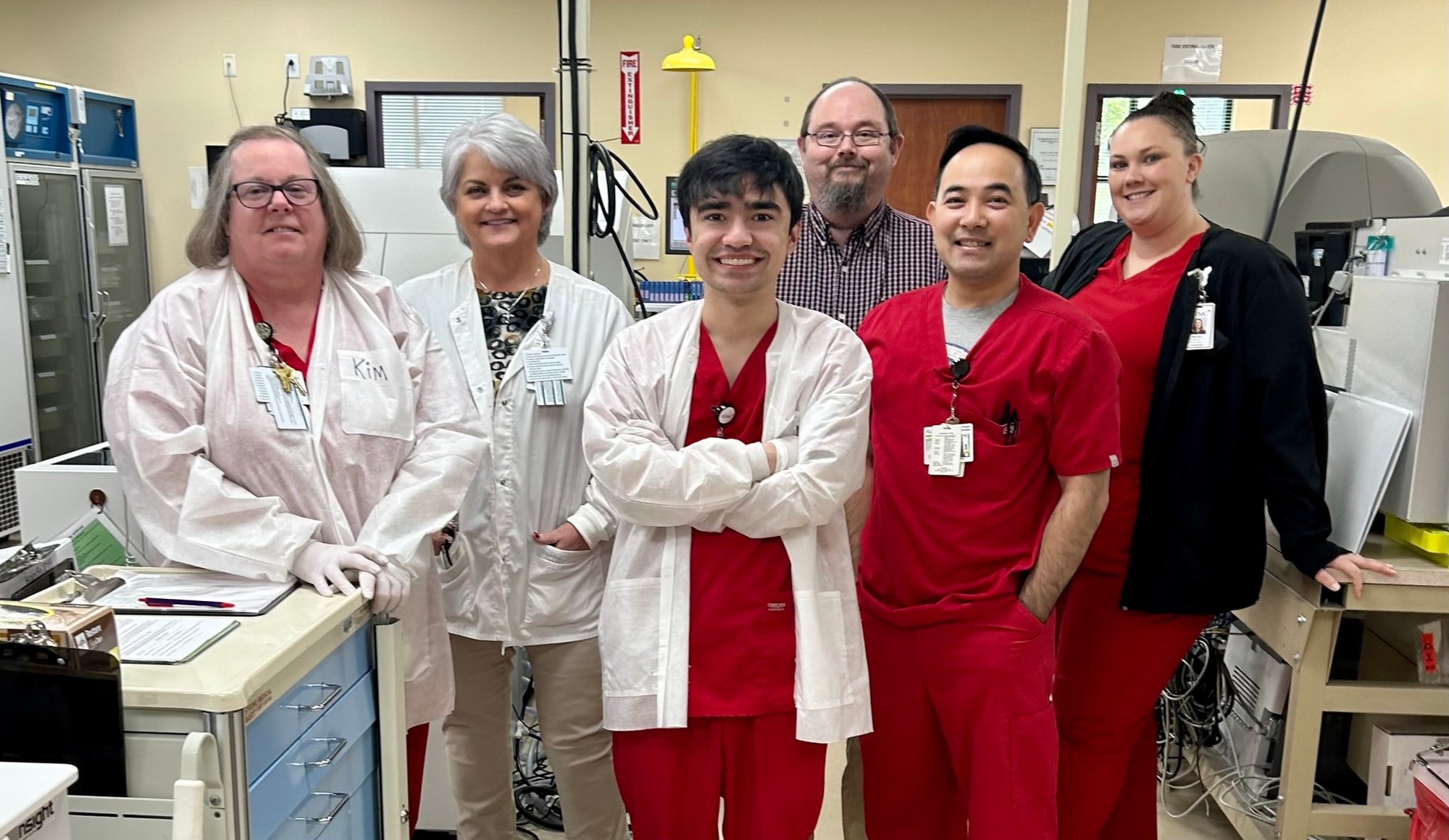
Expanding on this initiative, SGMC Health extended its collaboration to include Valdosta State University. Through a unique program, biology graduates from VSU undergo specialized training at SGMC Health to become certified MLTs. This not only enriches the talent pool in the community but also provides employment opportunities for graduates.
These collaborations not only benefit the health system but also contribute to the community's well-being. Having lab work conducted locally enhances patient convenience and ensures quicker turnaround times for crucial results. Patients in South Georgia now have access to comprehensive lab services without the need to travel, demonstrating SGMC Health's commitment to providing accessible and efficient healthcare. On average, the four campuses perform around 7,500 lab tests per day.
"Bringing advanced medical services to South Georgia, we ensure you don't have to leave home for top-notch care," says Christina Okuma, Point of Care and Phlebotomy Clinical Manager at SGMC Health. "Swift results, delivered directly to your physicians, empower timely and effective patient treatment."
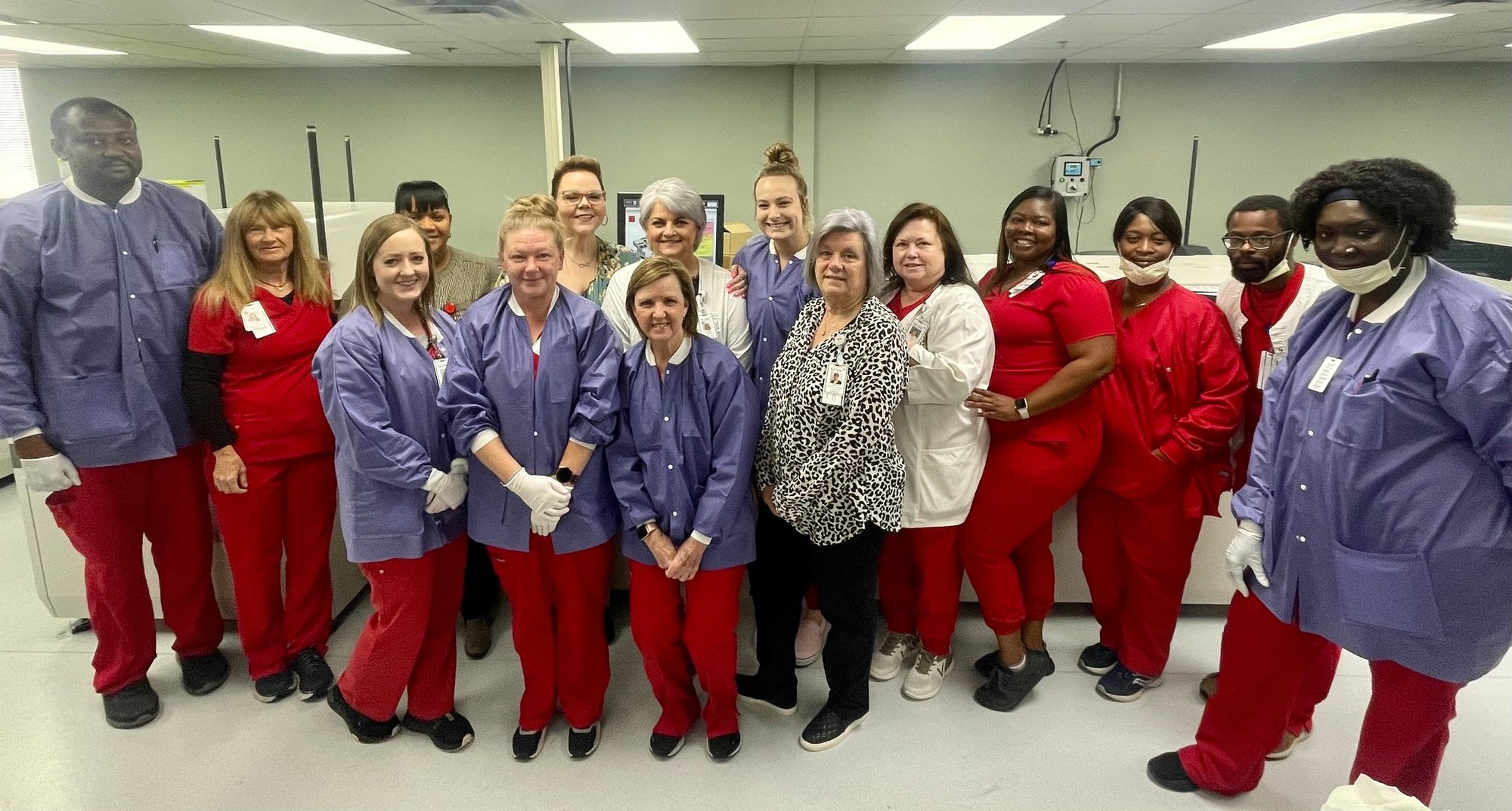
Not only does SGMC Health Main in Valdosta have these lab capabilities, but Lanier, Berrien, and Smith Northview campuses do as well. Their labs have identical equipment ensuring that no matter which campus a patient visits for their lab work they will get the same quality care and test results.
Looking ahead, SGMC Health is poised to make further strides in molecular biology tests, reinforcing its commitment to staying at the forefront of diagnostic technologies. The cohesiveness in instrumentation across all campuses ensures standardized and efficient lab services for the community. SGMC Health Lab's growth, strategic partnerships, and educational collaborations underscore its dedication to advancing healthcare services, benefiting both the organization and the communities it serves.
Subscribe for updates Never miss a beat.

SGMC Health's "What Brings You in Today?" Podcast
When you hear the phrase "What brings you in today?" you're usually sitting in a doctor's office preparing to explain your symptoms. SGMC Health's marketing team thought, "What if we bring that question to our healthcare professionals instead?" From there, the health system's first podcast was born.
The engaging and educational podcast was launched in 2024 as a vital addition to the health system's community outreach initiatives. Hosted by the health system’s marketing team, the podcast is set to become a cornerstone in educating the public on healthcare topics, presenting insights from seasoned physicians and medical professionals.
Watch all of the What Brings You in Today? podcast episodes here on YouTube.
In a dynamic healthcare landscape, where information is paramount, SGMC Health recognizes the need to offer accessible and engaging resources. The podcast serves as a strategic avenue to empower the community by providing easily understandable information on preventive care, medical procedures, and health awareness.
Erika Bennett, Director of Marketing and Brand Experience at SGMC Health, emphasized the significance of this new venture, stating, "Healthcare is ever evolving, and we want to provide the very best insight and resources for our community to empower them to make informed decisions about their health. This is just another way that SGMC Health is providing extraordinary care to the communities we serve."

Podcasts are emerging as an essential tool to reach potential healthcare service users. With their accessibility and ability to deliver expert advice in an engaging format, they cater to a diverse audience seeking reliable health information. “Podcasts have surged in popularity over the last few years, so we saw the opportunity to use ours to open a conversation between our providers and the public,” says Bennett. “We see this as a way for listeners to get to know our medical professionals in a less formal setting and have the opportunity to interact by submitting questions and topics they want to learn about.” As SGMC Health continues its mission to educate the community on health issues, the medium becomes a vital platform to reach a broader audience and foster a deeper understanding of healthcare topics.
Listeners can tune in to "What Brings You in Today?" on popular platforms like Apple Podcasts, Spotify, and YouTube. Subscribing is encouraged so an episode is never missed, and the audience is invited to actively participate by submitting questions or suggesting topics for future episodes.
SGMC Health is a comprehensive regional healthcare system comprised of four hospital campuses in Lowndes, Berrien, and Lanier counties. Its network of services across counties in South Georgia includes a designated level three trauma center, primary stroke center, advanced women’s and infants, heart, vascular, cancer, and surgical centers and programs alongside 40 plus specialty care centers and clinics.
For more information on the podcast and to subscribe, visit sgmc.org/podcast.

Helping Babies Sleep Safely
In a significant milestone for infant safety and well-being, SGMC Health has been awarded the esteemed Gold Safe Sleep Hospital recognition by the National Safe Sleep Hospital Certification Program.
Created by Cribs for Kids®, a national infant safe sleep organization, this award highlights the hospital's steadfast commitment to implementing best practices and educating the community on the importance of safe sleep practices for infants.
The National Safe Sleep Hospital Certification Program, created in partnership with leading infant health and safety organizations, recognizes hospitals that demonstrate a dedication to reducing infant sleep-related deaths by promoting and educating on best safe sleep practices recommended by the American Academy of Pediatrics (AAP). SGMC Health's attainment of the Gold recognition, the program's highest designation, underscores its role as a leader in infant safety within the healthcare community.
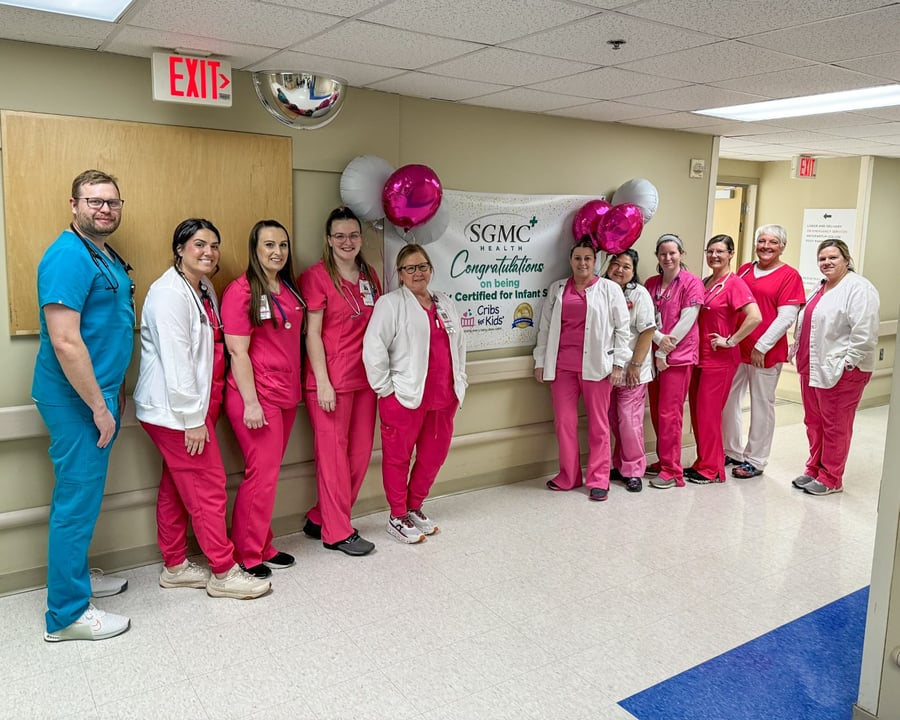
Sudden Unexpected Infant Death (SUID), previously known as SIDS, poses a significant threat to infants, particularly during sleep. SGMC Health's Birthplace professional staff are at the forefront of addressing this issue, ensuring that every newborn born at the hospital has a safe sleep environment at home. Through a partnership with the SGMC Foundation, infants identified as needing a safe sleeping place are provided with bassinets, while families are equipped with swaddles featuring "back is best" embroidery, serving as a tangible reminder of proper sleep positioning. These efforts, made possible through generous donations, exemplify SGMC Health's commitment to supporting families and protecting the most vulnerable members of the community.
Hilary Gibbs, SGMC Health Vice President and Chief Development Officer, emphasized the pivotal role of community support in enhancing the care and well-being of newborns. “This is a great example of how generous donations to the Foundation can enhance the care and well-being of the newest members of our communities,” shared Gibbs.
“Sleep-Related Death (SRD) results in the loss of more than 3,500 infants every year in the U.S.,” said Michael H. Goodstein, MD, neonatologist and medical director of research at Cribs for Kids®. “We know that modeling safe infant sleep in the hospital and providing education to families has a significant effect on infant mortality. Cribs for Kids Hospital Certification Program is designed to recognize those hospitals that are taking an active role in reducing these preventable deaths.”
“We are incredibly proud of this achievement, not for ourselves, but for the families that we serve and the new life we bring into the world,” shared Kendra Butenschon, RN, Patient Care Coordinator in the Nursery. “This certification sets the standard for excellence in infant care, and it will certainly save precious lives.”
As SGMC Health celebrates this milestone, it remains dedicated to fostering a community where every newborn has the opportunity to thrive in a safe and nurturing environment. The Gold Safe Sleep Hospital recognition serves as a testament to SGMC Health's unwavering commitment to infant safety and its ongoing efforts to make a meaningful difference in the lives of families.
For more information on SGMC Health's initiatives and the National Safe Sleep Hospital Certification Program, visit https://cribsforkids.org/hospitalcertification.
Safe Sleep Recommendations from the American Academy of Pediatrics
Parents and caregivers can help create a safe sleep area for babies by taking the following steps:
Put your baby on their back for all naps & at night
Babies who sleep on their backs are much less likely to die suddenly and unexpectedly than babies who sleep on their stomachs or sides. The problem with the side position is that your baby can roll more easily onto their stomach.
Some parents worry that babies will choke when they're on their backs. But your baby's airway anatomy and their gag reflex will keep that from happening. Even babies with gastroesophageal reflux disease (GERD) should sleep flat on their backs.
Use a firm, flat sleep surface
A firm surface means that it shouldn't indent when your baby is lying on it. Any surface that inclines more than 10 degrees isn't safe for your baby to sleep on.
Place your baby in a crib, bassinet, portable crib or play yard that meets the safety standards of the Consumer Product Safety Commission (CPSC).
Make sure your crib mattress is designed for your specific crib and that it fits tightly. Use a fitted sheet only—nothing else should be in the crib with your baby.
Never sleep with your baby
Based on the evidence, the AAP doesn't recommend bed sharing with your baby under any circumstances. This includes twins and other multiples.
If you bring your baby into your bed to feed or comfort them, place them in their own sleep space when you're ready to go to sleep.
Avoid falling asleep with your baby in other spots, too. The risk of sleep-related infant death is up to 67 times higher when infants sleep with someone on a couch, soft armchair or cushion.
Instead of bed sharing, room share with your baby
This means keeping your baby's sleep area in the same room (but not in the same bed) where you sleep for at least the first 6 months. Place your baby's crib, bassinet, portable crib or play yard in your bedroom, close to your bed.
The AAP recommends room sharing because it can decrease the risk of SIDS by as much as 50% and it's much safer than bed sharing. Room sharing will also make it easier for you to feed, comfort and watch your baby.
Keep soft objects & loose bedding out of your baby's sleep area
These objects can increase your baby's risk of entrapment, suffocation or strangulation. This includes pillows and pillow-like toys, quilts, comforters, mattress toppers, non-fitted sheets, blankets, toys, bumper pads or related products that attach to crib slats or sides.
If you're worried about your baby getting cold, you can dress them in layers of clothing or use a wearable blanket. In general, you should dress your baby in only one layer more than you're wearing.
Don't use weighted blankets, sleepers, swaddles or other weighted objects on or near your baby.
Don't let your baby get overheated
Overheating can increase the risk of SIDS. Your baby only needs one more layer than you would wear in the same environment to be comfortable.
Check your baby for signs of overheating such as sweating, a hot chest or flushed skin.
Don't put a hat on your baby while indoors once you're home from the hospital.
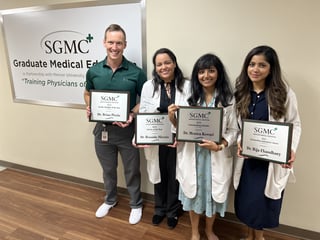
Nurturing Tomorrow's Healers
In 2023, SGMC Health welcomed 8 more primary care physicians to South Georgia as a part of its Internal Medicine Residency Program.
In partnership with Mercer University School of Medicine, SGMC Health launched the program with approval from the Accreditation Council for Graduate Medical Education in 2021. The first class of 8 physicians joined in July of 2022. These doctors are now in the Post Graduate Year 2 (PGY2) of their residency journey.
For its second class of residents, SGMC Health received more than 1,800 applications and conducted 102 interviews. The applicants then went through Match Day, a process where they are matched up with programs based on ranked voting from both the applicant and the hospital. Eight medical school graduates ultimately matched with SGMC Health to begin their 3-year residency training with the health system.
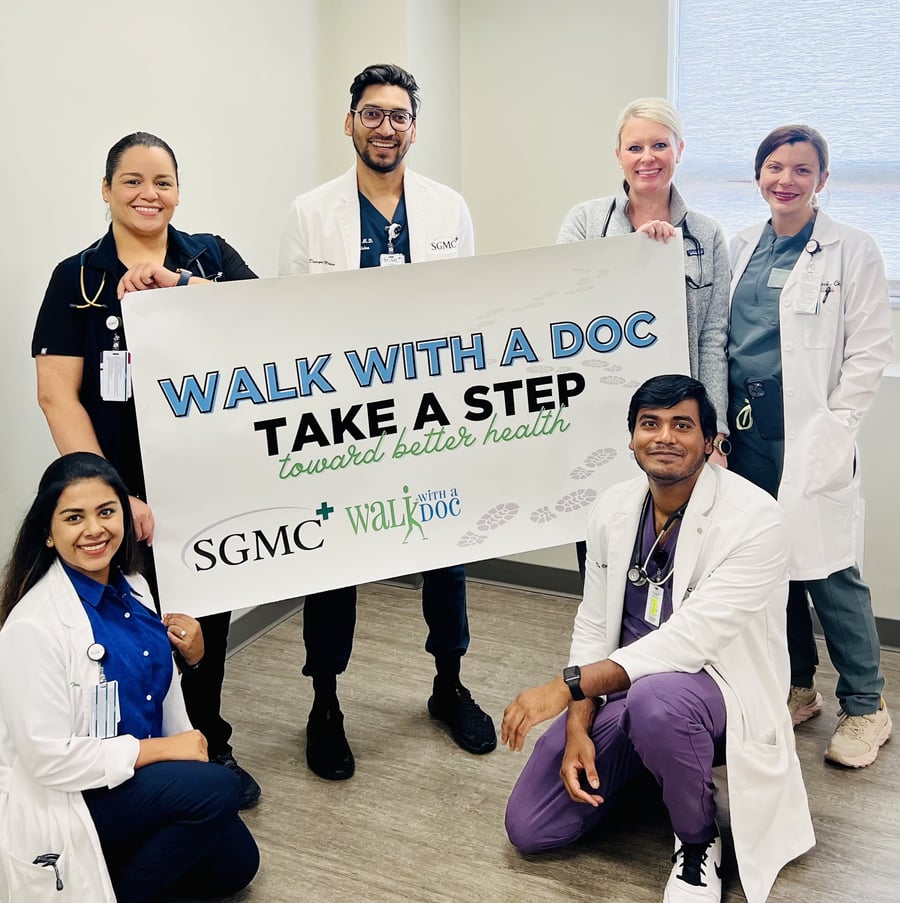
“Educating the next generation of physicians is a responsibility that our team does not take lightly. We are thrilled and humbled to be able to have such a powerful impact on the future of healthcare for our area,” said Gregory Beale, MD, SGMC Health Residency Program Director.
Residents are doctors who have completed medical school, have earned a degree such as M.D. or D.O., and practice under the direct supervision of an “attending” or senior physician. Physicians complete residencies so that they can specialize and become board-certified or board eligible in a particular field.
Research shows that medical residents tend to stay close to their training site to work after they graduate. The residency program is intended to enhance recruitment and retention efforts at SGMC Health.
“Our expert faculty provides residents an educational foundation focused on evidence-based medicine. Our doctors are committed to their success and look forward to seeing them excel in their medical careers,” shared Leslie Lamptey, MD, Internal Medicine Associate Program Director.
Outside of the hospital, the Internal Medicine Residency Program operates a continuity clinic at SGMC Health Internal Medicine on Park Avenue in Valdosta under the direction of Joseph Hayes, MD, Medical Director. This allows residents the opportunity to learn how to manage both common and complicated outpatient conditions and to follow patients over time.
SGMC Health’s 2023-2024 Class of Internal Medicine Residents includes:
For more information, visit sgmc.org/gme.

SGMC Health Encourages Patients to Know, Then Go
SGMC Health launched a site dedicated to helping patients better understand when and where to seek the appropriate medical care. Know, then Go, accessible at health.sgmc.org/know-then-go, offers education on the differences between various types of care to include primary care, urgent care, or emergency services.
While the answer is not always simple, understanding the basics can help patients save time and money, but most importantly, ensure they receive the correct level of care.
According to Elizabeth Flail, DO, co-director for SGMC Health's Emergency Department and Urgent Care Center, recognizing the difference between 'emergency' and 'urgent' care can be difficult because both terms imply a medical need that needs to be addressed quickly.
"There are distinct differences between the level of care provided at hospital emergency departments and urgent care facilities," says Dr. Flail. "Our ERs are equipped to handle the most complex or critical medical needs, which include life and limb threatening situations ranging from a heart attack and stroke to traumatic injuries following an accident."
For non-life threatening illnesses and injuries, Dr. Flail shares that there are a few reasons your primary care physician (PCP) should be your first call.
"Your PCP knows you and your health history, including what medications you take and any chronic conditions that should be considered in your treatment," says Dr. Flail.
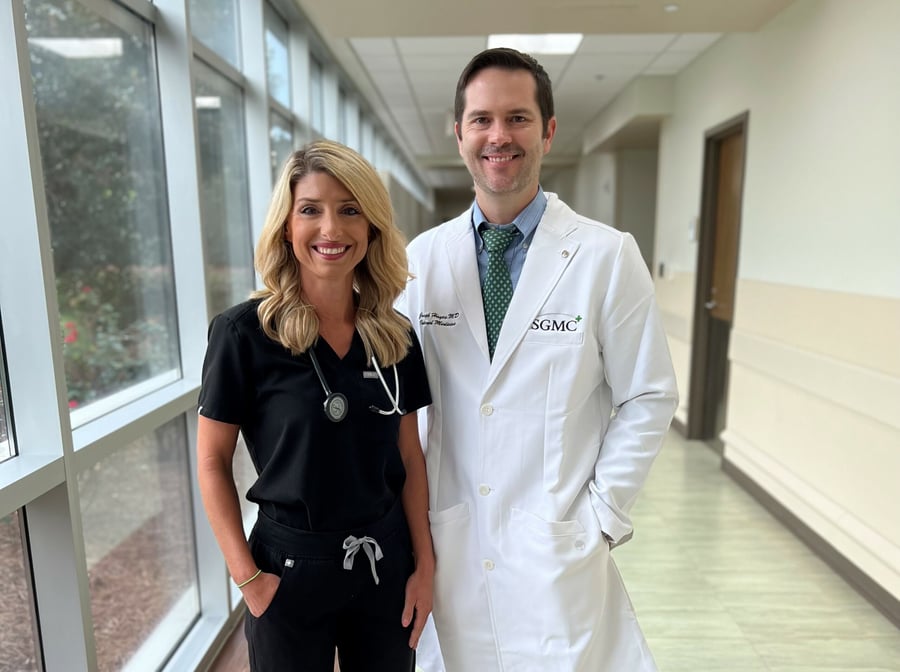
Elizabeth Flail, MD and Joseph Hayes, MD
However, if you don't have an established PCP or if your PCP is unavailable, an Urgent Care may be your next best choice as they typically accept walk-in patients and are open after-hours and on weekends.
"Urgent Care is the middle ground between a PCP and the ER. If you have a minor illness or injury that just can't wait until a regular appointment, Urgent Care fills that gap," she says.
Urgent care centers generally have shorter wait times compared to an ER, and in most cases, the out-of-pocket cost is also lower. However, it's always a good idea to check to see what is covered by your insurance plan.
A good rule of thumb: if your sudden illness or injury is something you would normally feel comfortable addressing with your PCP, then an urgent care setting is probably more appropriate than the ER.
"Even if you consider yourself healthy, regular check-ups are essential for detecting any potential issues early," said Dr. Hayes.
According to Joseph Hayes, MD, Medical Director at SGMC Internal Medicine at Park Avenue, the best time to get a PCP if you don't have one is now.
He says, "Even if you consider yourself healthy, regular check-ups are essential for detecting any potential issues early. Your PCP will also help you stay current with appropriate screenings and tests, provide health education and counseling, and facilitate referrals to specialists as needed."
SGMC Health offers the entire continuum of care to include 12 primary care offices, four emergency departments, and an urgent care center. For more information, visit health.sgmc.org/know-then-go.
Subscribe for updates Never miss a beat.
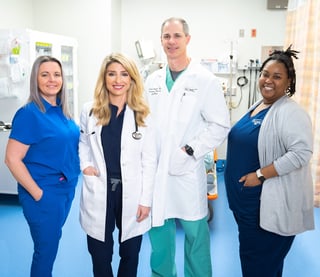
Enhancing Emergency Care
Access to emergency services can mean the difference between life and death, particularly in South Georgia and its rural communities. As the heartbeat of the region's healthcare infrastructure, SGMC Health plays a pivotal role in ensuring that residents have timely access to critical care when emergencies strike. With multiple facilities and a robust EMS program, SGMC Health stands as a beacon of hope and support for the communities it serves.
In the fiscal year 2023, SGMC Health saw nearly 100,000 patients between its 4 emergency departments in Lowndes, Berrien, and Lanier counties. SGMC Health Main saw a staggering 60,000 patients, while its Smith Northview location treated more than 17,000. SGMC Health Berrien and SGMC Health Lanier, both rural hospitals, tended to nearly 11,000 patients each.
Emergency Room Visits by Location
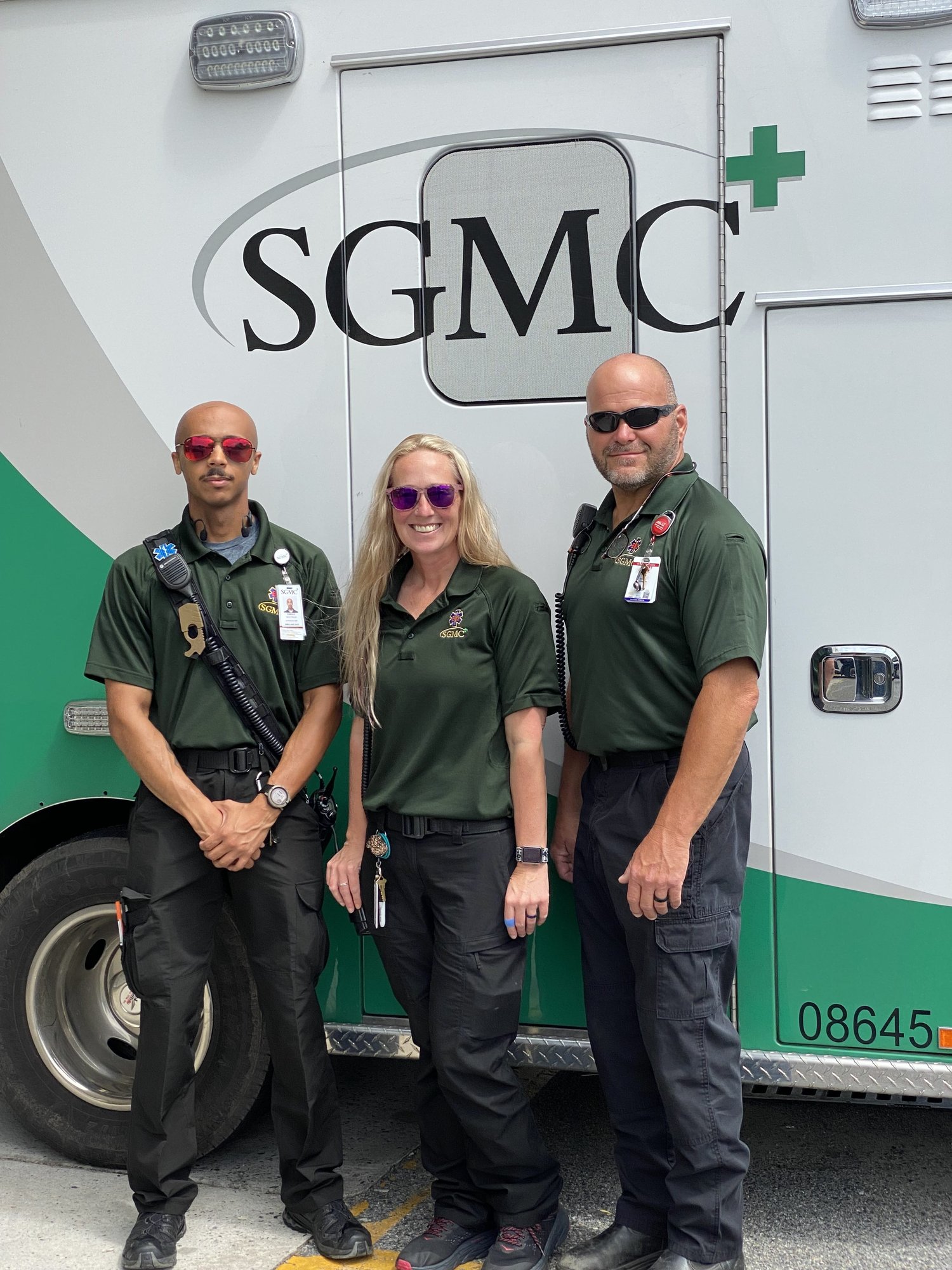
"These numbers underscore the pressing demand for emergency services in our area," shared Randy Smith, SGMC Health Chief Operating Officer. "With the reopening of Smith Northview's emergency department in January 2023 and the major expansion projects underway at our Main and Berrien locations, we are working hard to ensure that patients have the access to care that they need for years to come."
Whether it's trauma, cardiac events, or strokes, timely intervention is paramount for positive patient outcomes. SGMC Health's extensive network of hospitals ensures that no matter where an emergency occurs, help is never too far away.
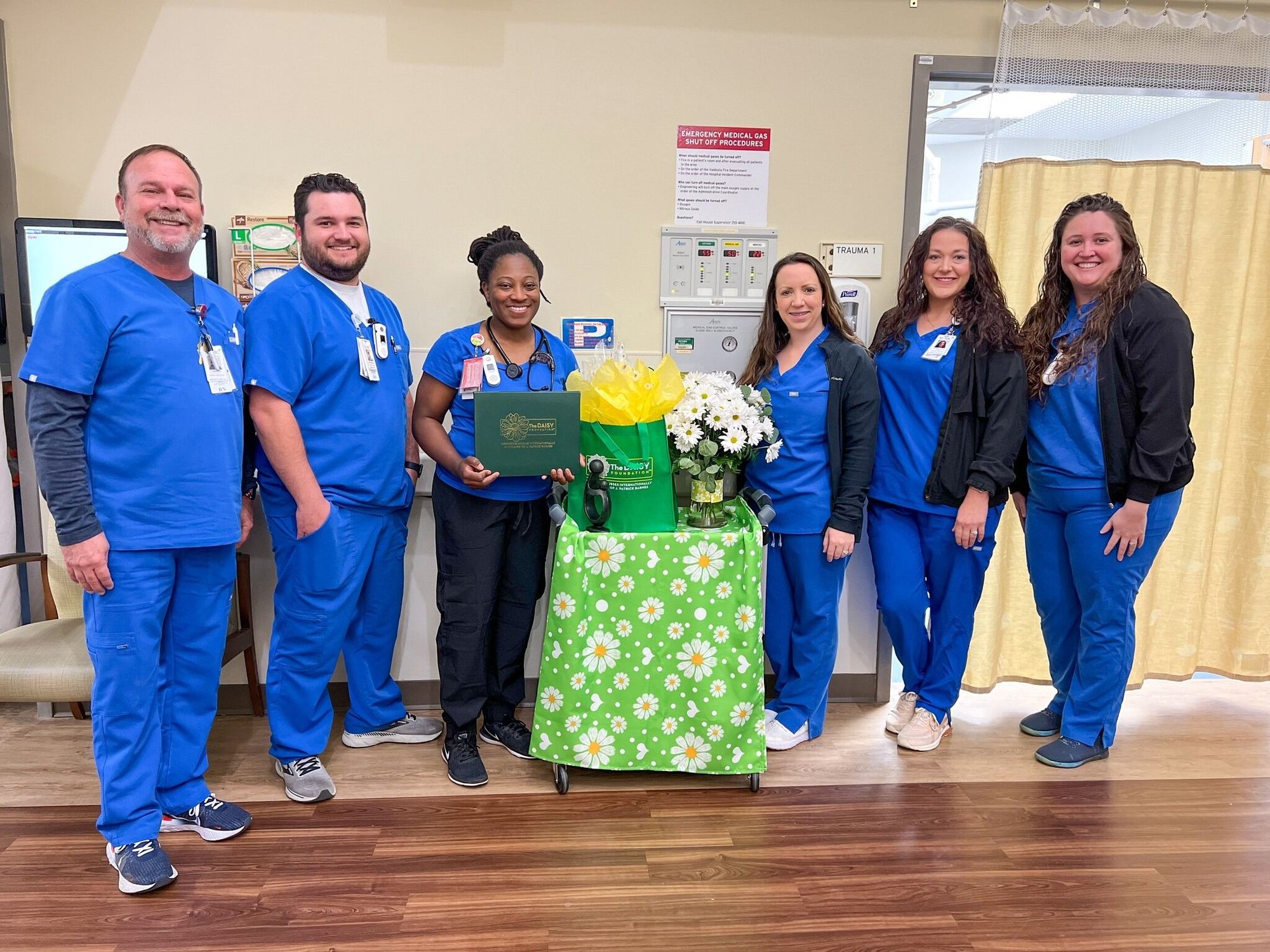
At the heart of SGMC Health's emergency response efforts is its EMS program, which handles over 23,000 911 calls annually across Lowndes, Lanier, and Echols counties. Beyond emergency response, SGMC Health EMS provides non-emergency transportation services, facilitating over 5,000 transports yearly. This comprehensive approach to medical transportation helps patients receive the care they need.
One of the key strengths of SGMC Health's EMS program is its integration with the broader healthcare system. As an integral part of the treatment process, EMS personnel play a crucial role in identifying critical conditions such as trauma, cardiac events, and strokes. Rapid identification and swift transport to the appropriate medical facility can significantly enhance patient outcomes, minimizing the risk of long-term disability or death.
The significance of SGMC Health's emergency services extends beyond its role in emergency response. In 2023, SGMC Health achieved the prestigious designation of a Level III Trauma Center by the Georgia Department of Public Health. This milestone underscores the organization's commitment to providing high-quality trauma care to the communities it serves. From initial assessment and stabilization to advanced trauma interventions, SGMC Health's trauma center serves as a lifeline for critically injured patients in the region.
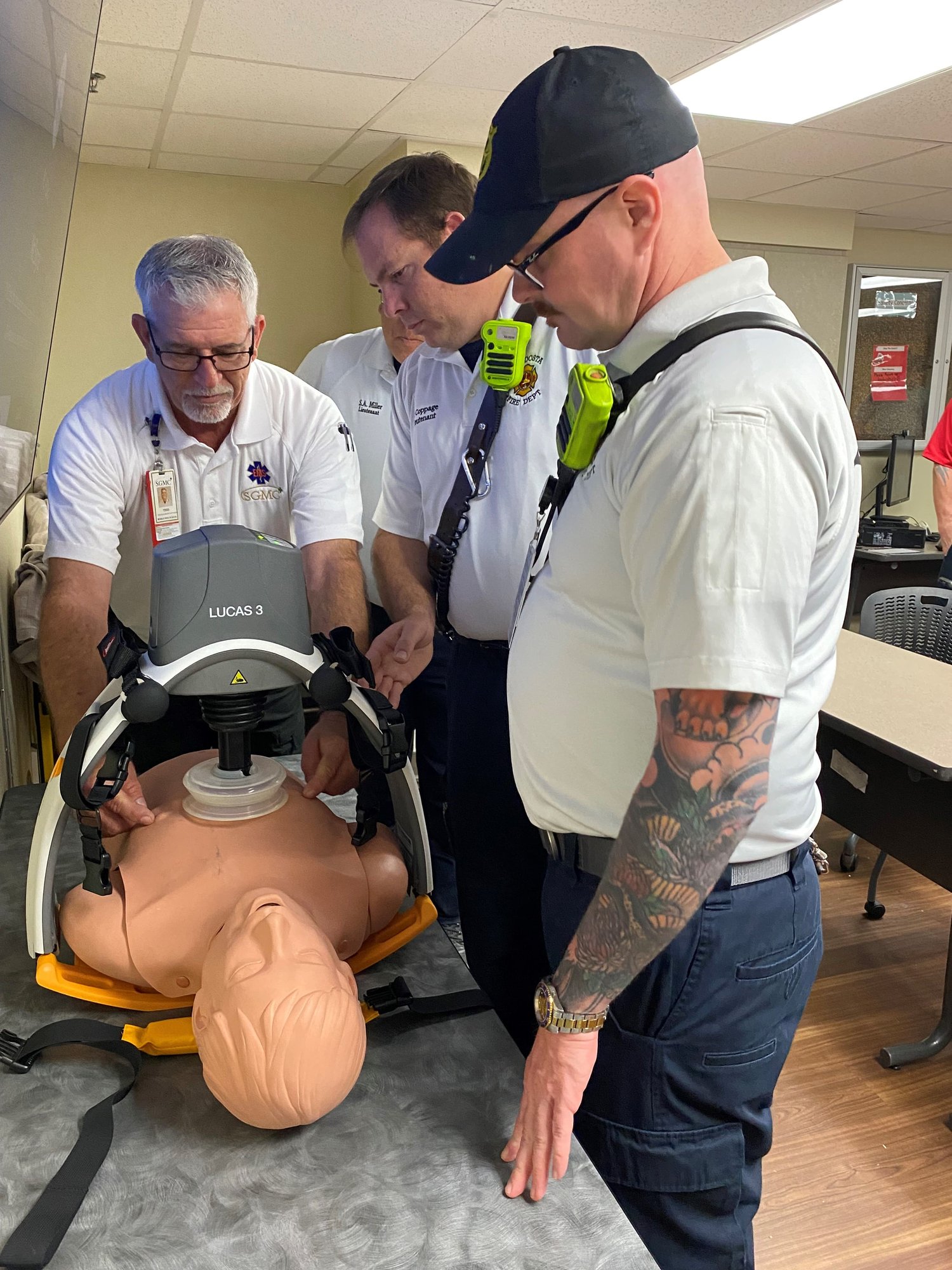
Through its extensive network of hospitals and robust EMS program, SGMC Health plays a vital role in ensuring that residents have timely access to life-saving care when emergencies occur. By providing high-quality trauma and emergency care, SGMC Health continues to make a profound difference in the lives of individuals and families throughout the region.

Investing in Cardiac Care
Over the past year, SGMC Health added several procedures to its comprehensive array of treatments for heart and vascular disease.
One of those included a procedure which uses Impella CP® with SmartAssist, the world’s smallest heart pump. Designed to provide minimally invasive, temporary support for patients with heart failure, this transformative technology allows interventional cardiologists to provide more comprehensive care options to patients with advanced coronary disease.
The first procedure was performed by Interventional Cardiologist Edward Distler, DO, assisted by Luke Seibolt, MD and Daryoosh Derakhshan, DO.
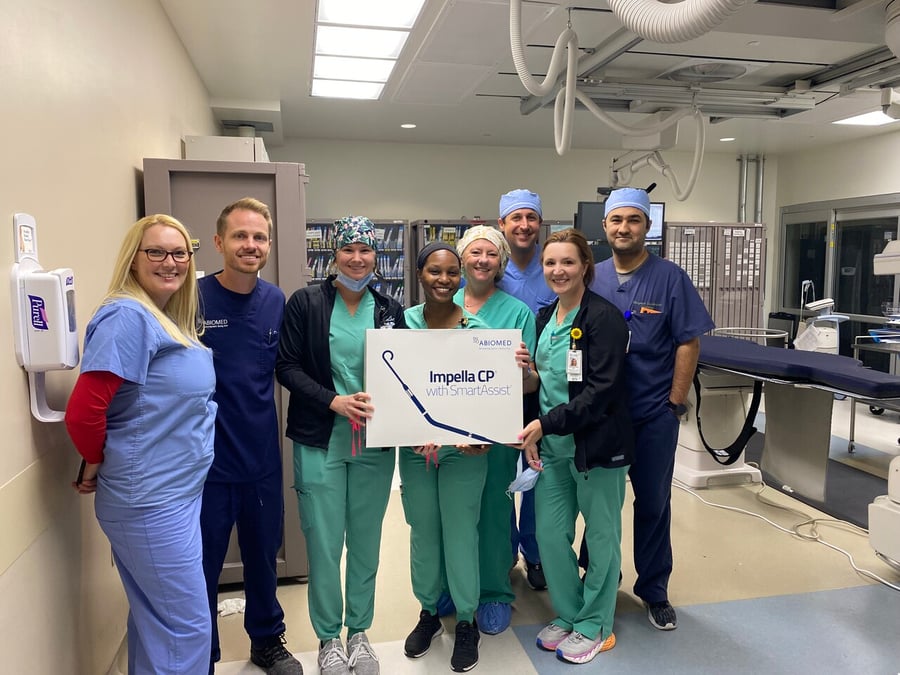
According to Dr. Distler, "The device not only offers a lifeline to patients who may otherwise have limited treatment options, but it also allows us to pursue more aggressive interventions with greater confidence. By maintaining stable hemodynamics and improving cardiac output, this technology has revolutionized our approach to complex cardiovascular cases, leading to improved outcomes and renewed hope for patients and their families."
Additional patient benefits include a quicker recovery process and decreased likelihood of repeat procedures and multiple hospital stays.
For patients with atrial fibrillation (AFib) not caused by heart valve issues, SGMC Health now offers the WATCHMAN device. Implanted by the cardiac electrophysiology team, the device has been shown to help patients with AFib who are unable to tolerate long-term blood thinners.
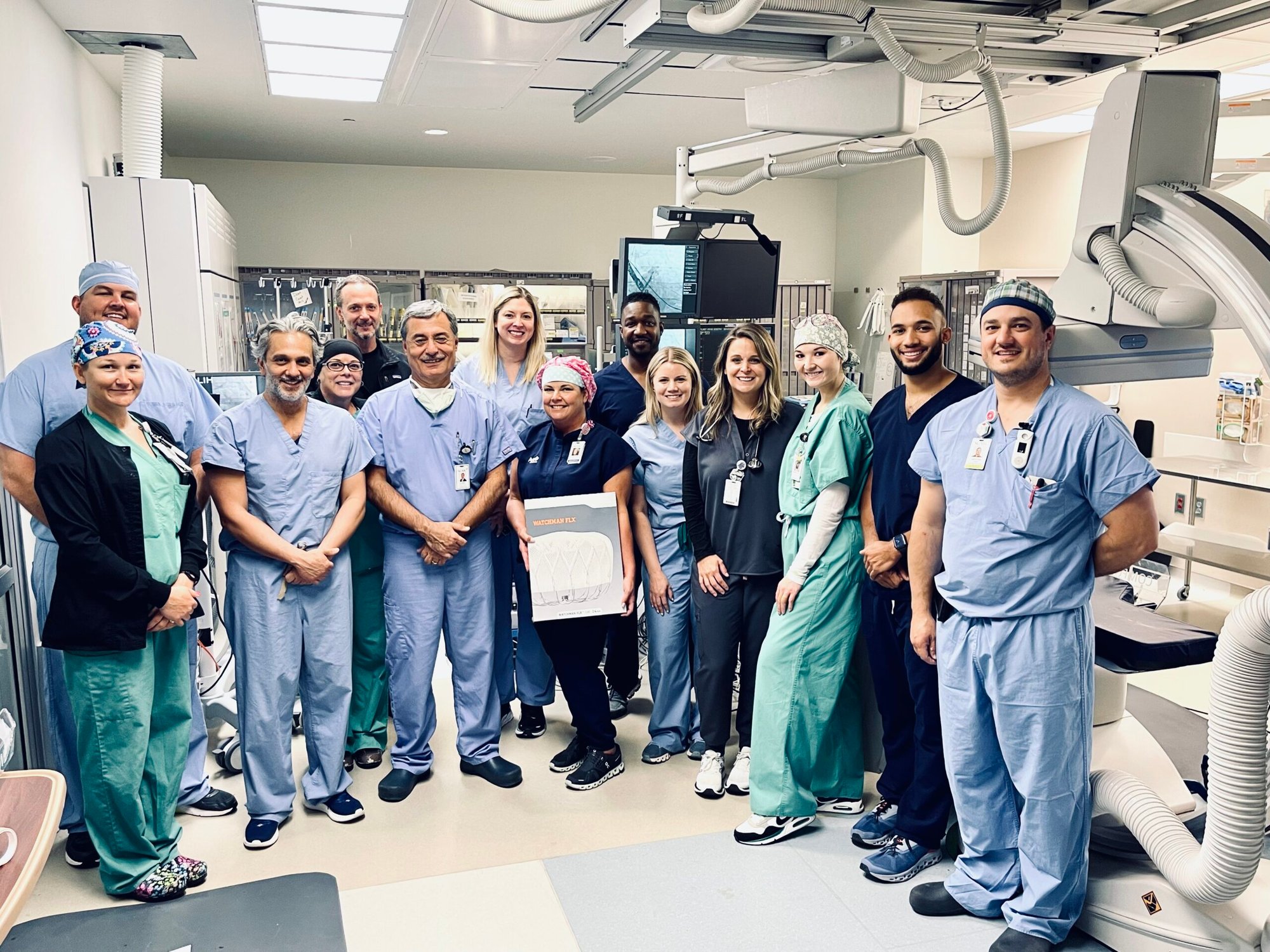
According to Electrophysiologist Kamil Hanna, MD, who was the first to perform the procedure at SGMC Health, patients with AFib have a five times greater risk of having a stroke.
"South Georgia has a high population of residents who suffer from AFib, so being able to offer this advanced procedure minimizes the risk of stroke and helps keep our patients safe," he shared.
Patients with AFib are typically required to take blood thinners to prevent blood clots from being formed. Patients that are unable to take blood thinners due to risk of bleeding and history of falls may be eligible to receive the procedure and discontinue blood thinners. The procedure to implant the WATCHMAN™ device is performed in the cardiac electrophysiology lab at SGMC Health and the majority of patients are discharged the same day or the day after. SGMC Health is the only hospital in South Georgia that performs the procedure.
SGMC Health has the region's only open-heart program, structural heart center, and electrophysiology program. To learn more about SGMC Health's heart and vascular programs, visit sgmc.org.
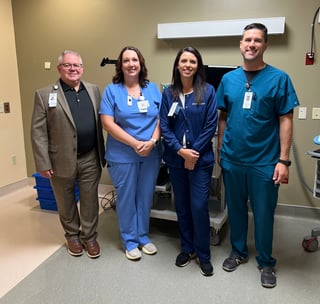
Trust Your Gut
SGMC Health made great strides in the field of gastroenterology (GI) this past year. Not only did the system open a new GI office, but services at the GI Center at its Smith Northview Campus were also expanded.
This service line growth began with welcoming two gastroenterologists to SGMC Health's Physician Network, Jeff Anucha, MD, and Amrendra Mandal, MD. Both physicians specialize in the diagnosis and treatment of disorders and diseases related to the gastrointestinal tract.
Shortly after their arrival, SGMC Health announced the expansion of its GI services at its Smith Northview Campus. This included a renovation to the GI Center which increases the facilities’ capacity to allow for a greater number of procedures.
SGMC Health's GI Center expansion represents a significant milestone in the health system's ongoing mission to enhance access to quality healthcare services in our area. The center is led by Maria Castellano, MD, an expert in the field of gastroenterology serving patients throughout the region for more than 30 years.
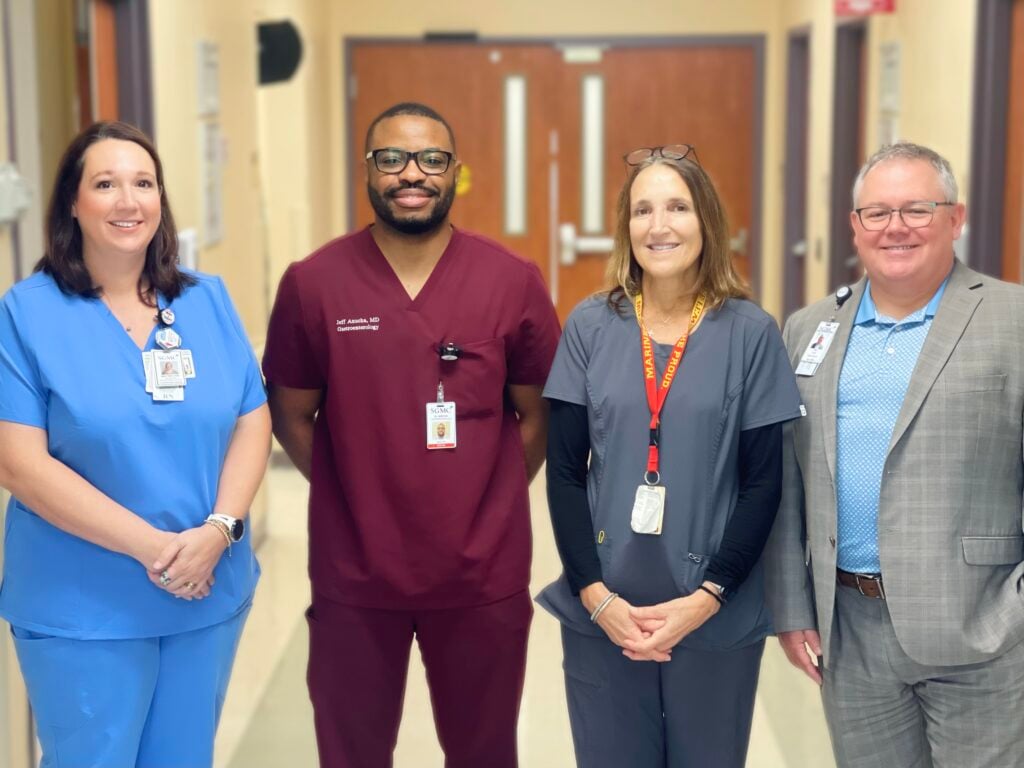
Dr. Castellano says, "Our team of gastroenterologists, nurses, and support staff are dedicated to delivering unparalleled expertise and support to our patients, ensuring they receive the best possible care for their gastrointestinal health."
Services include outpatient endoscopy procedures and comprehensive diagnostics.
The U.S. Preventive Services Task Force recommends that adults age 45 to 75 be screened for colorectal cancer. People at an increased risk of getting colorectal cancer should talk to their doctor about when to begin screening, which test is right for them, and how often to get tested.
SGMC Gastroenterology is accepting new patients. The office is located at 3230 Wildwood Plantation Drive in Valdosta and can be reached at 229-433-7985.
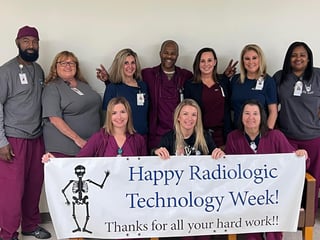
Investments in Imaging Elevate Healthcare Standards at SGMC Health
In the ever-evolving landscape of healthcare, the importance of advanced imaging technologies cannot be overstated. With more than 190,000 images processed annually across the system, these technologies not only aid in diagnosis but also significantly contribute to treatment planning and monitoring patient progress. Recognizing this pivotal role, SGMC Health has invested $16 million in imaging across its hospital campuses over the past four years, signaling a commitment to enhancing patient care and outcomes.
SGMC Health's decision to invest in imaging infrastructure reflects a strategic approach to meet the growing healthcare needs of its communities. By incorporating state-of-the-art imaging equipment, such as MRI, CT scans, X-rays, and ultrasound, SGMC Health ensures that patients receive timely and accurate diagnoses, paving the way for effective treatment interventions.
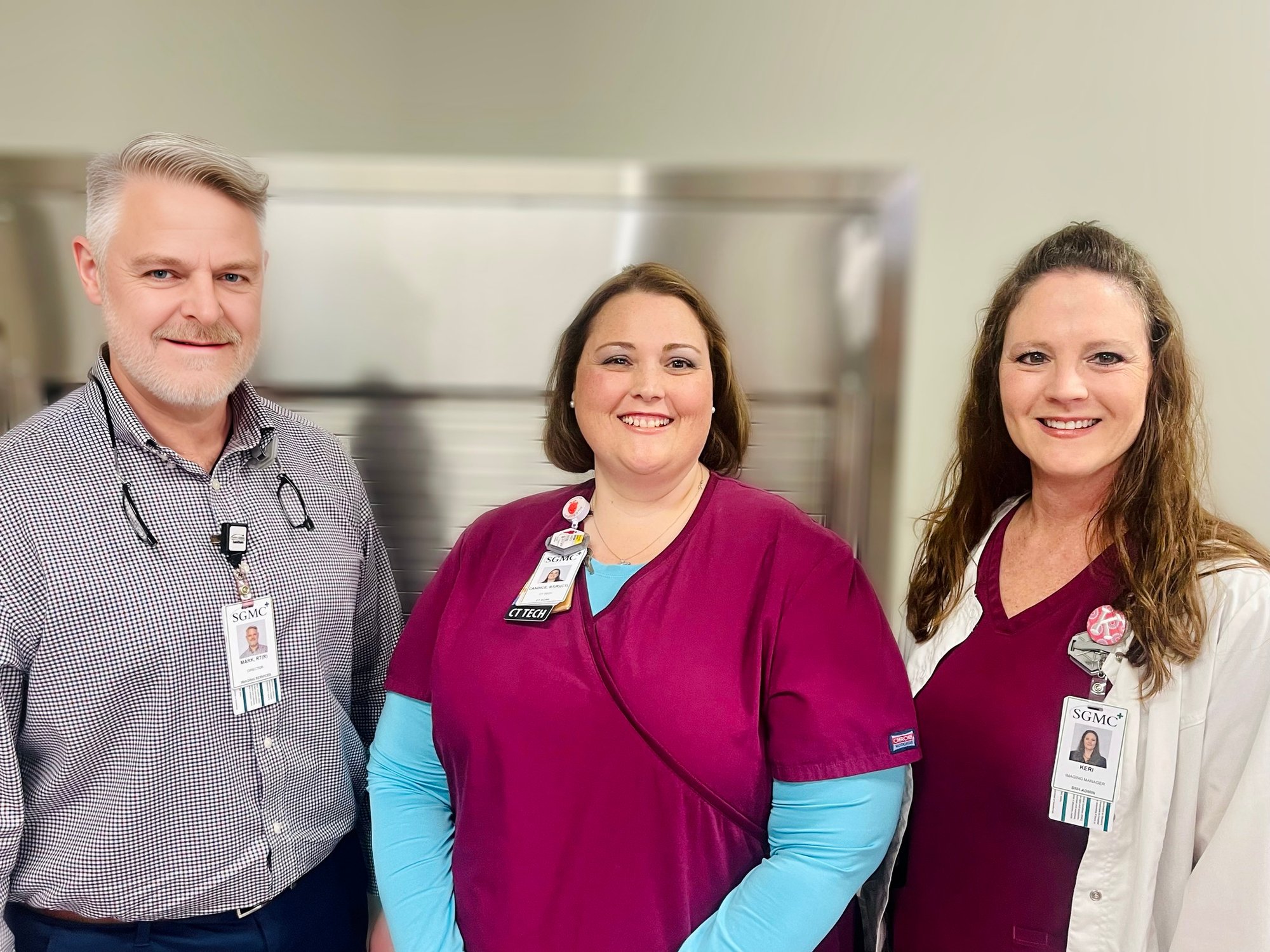
"The pace of technological advancement in healthcare is relentless, and we must constantly evolve to keep pace. Embracing newer imaging modalities isn't just about staying current; it's about ensuring we have the tools necessary to support innovative procedures and provide the best possible care to our patients," shared Mark Hodges, Director of Imaging.
One of the key aspects of SGMC Health's imaging strategy is the emphasis on having skilled imaging specialists on board. These specialists, including radiologists, technologists, and other support staff, play a vital role in the continuum of care for hospitals and communities. Their expertise in performing tests not only assists in accurate diagnosis but also enables healthcare providers to tailor treatment plans according to individual patient needs.
"Our imaging specialists are integral members of a patient's care team. Their willingness to continuously learn new modalities and equipment is commendable. Whether it's detecting early signs of diseases, guiding minimally invasive procedures, or monitoring treatment efficacy, our imaging specialists take pride in being at the forefront of patient management," shared Hodges.
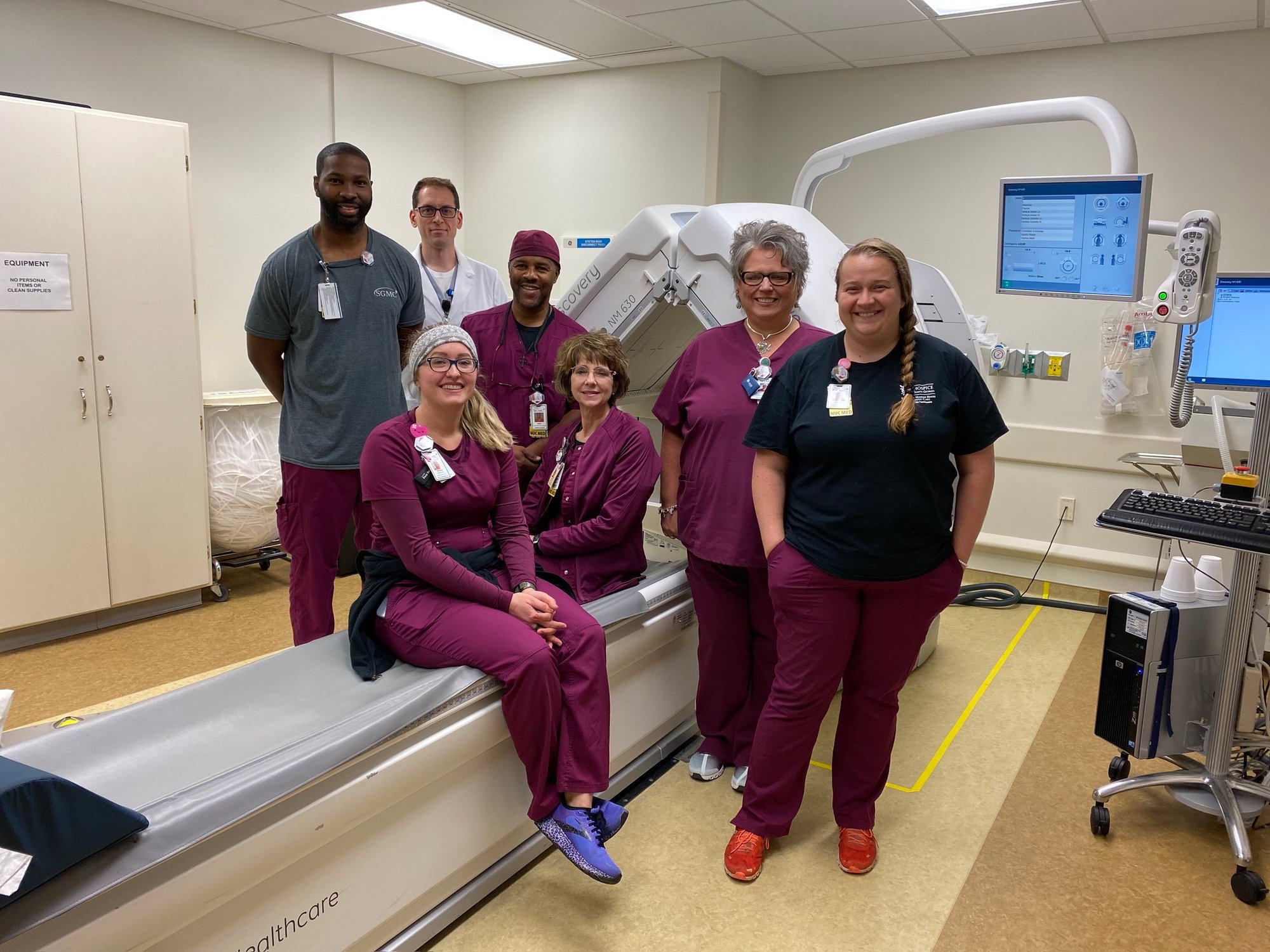
Improved diagnostic accuracy leads to more effective treatment strategies, ultimately resulting in better patient outcomes. By investing in cutting-edge technologies, SGMC Health demonstrates its commitment to staying at the forefront of medical innovation, further enhancing its reputation as a trusted healthcare provider.
Furthermore, the integration of imaging services within SGMC Health's healthcare ecosystem enhances efficiency and streamlines the patient journey. With seamless access to imaging facilities and timely interpretation of results, patients experience reduced wait times and a smoother care experience.



